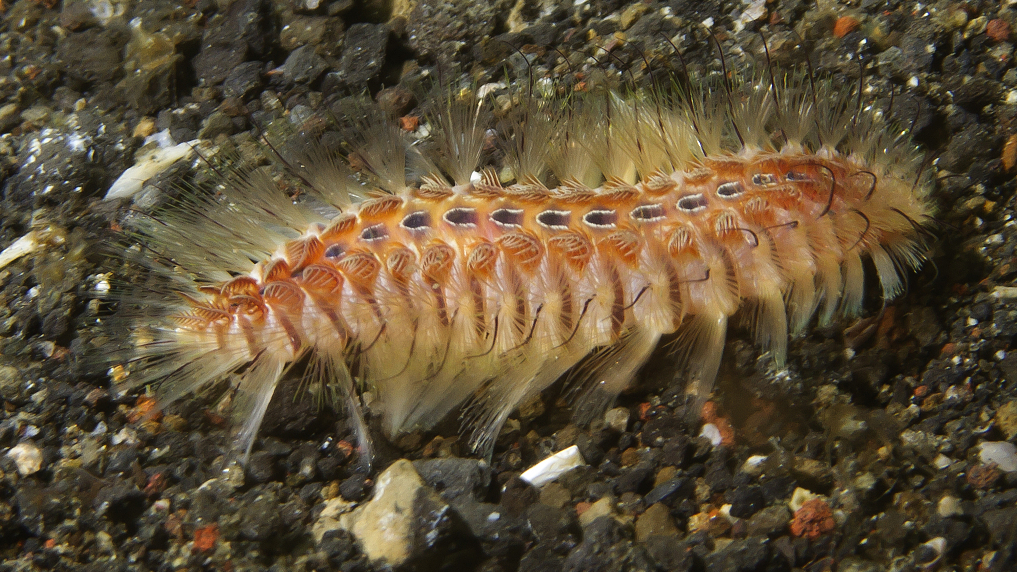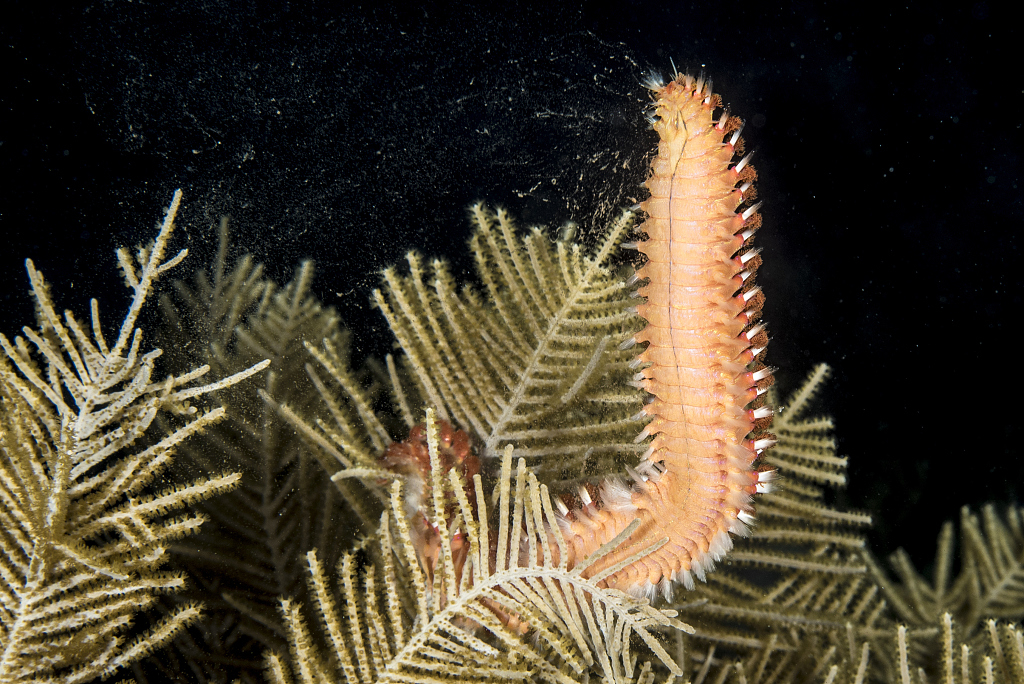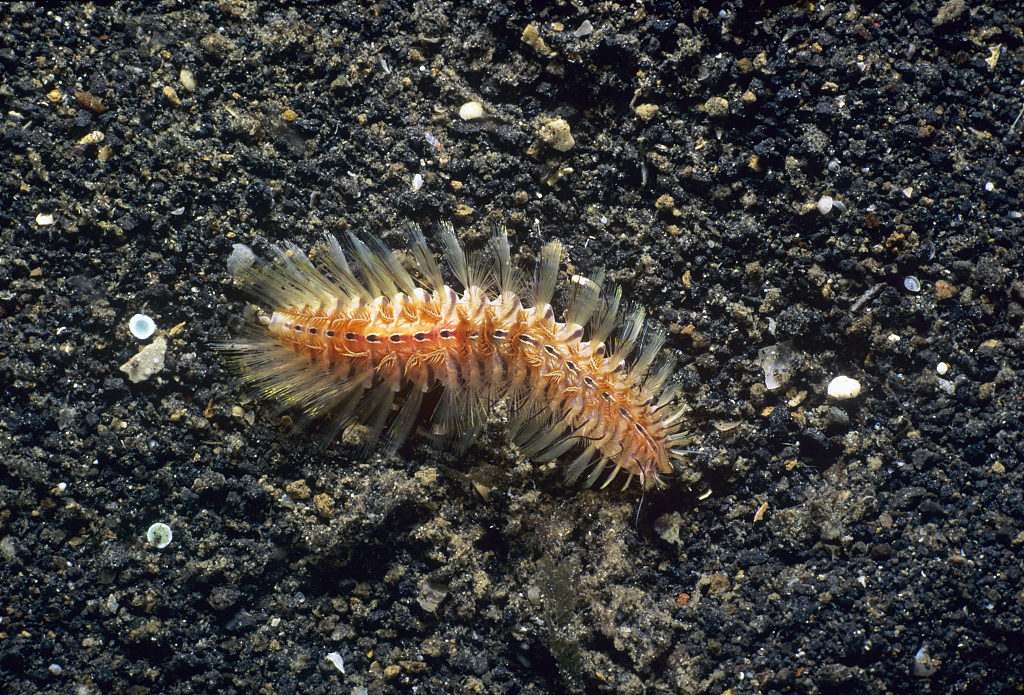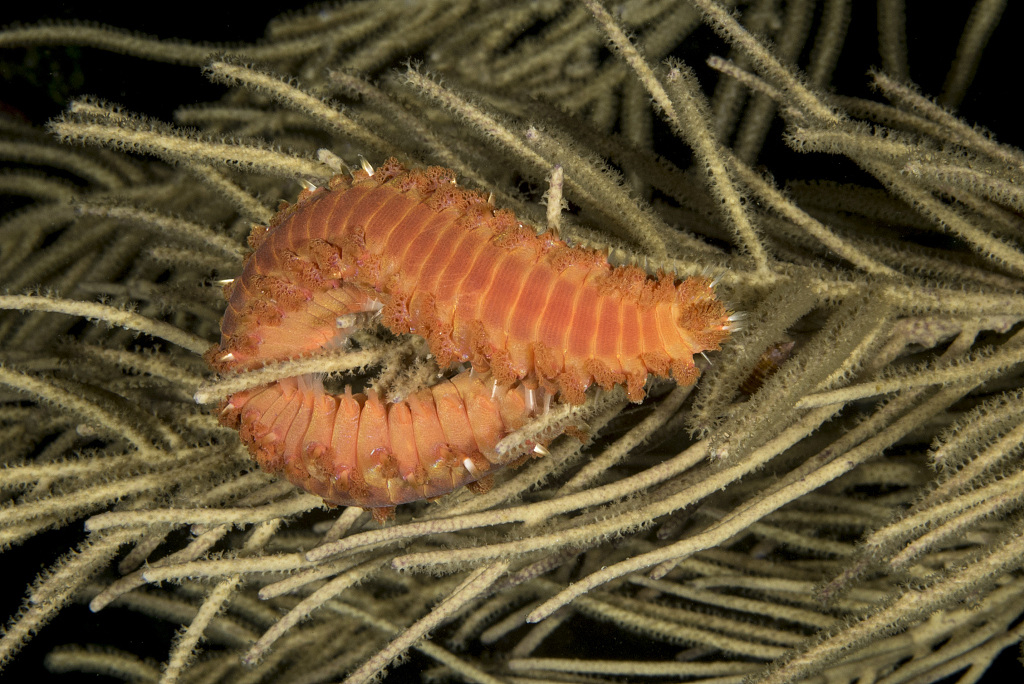

As summer arrives, the beach becomes a popular hangout zone for people looking to chill and shake off the unbearable heat.
However, sun seekers in Hong Kong Special Administrative Region might want to look where they're stepping this summer as the bearded fireworm has been spotted on the seashores.

The bearded fireworm in deep sea. /VCG Photo
Wearing sharp and toxin-laden bristles, these centipede-looking worms are normally five to 10 centimeters long, and around three centimeters wide. They are widely spread in the Indian-Pacific Ocean, and found in deep water areas and beneath reefs.
These creatures are wary of humans and could become aggressive when disturbed. Their bristles release poisons that can cause a burning pain, followed by itching, inflammation and numbness lasting for days or even weeks.

A bearded fireworm with long bristles. /VCG Photo
Due to the sweltering weather in the city, anoxic waters are expanding to the swimming areas and attracting fireworms for breeding. As a result, these prickly creatures are exposing themselves to human contact.
Groups of these worms have been found by lifeguards on Hong Kong beaches and several injuries have been reported. The local Leisure and Cultural Services Department has warned people to be on alert when swimming.

A fireworm. /VCG Photo
To prevent unpleasant encounters, here are some suggestions for your safety:
1. When walking on the beach, watch your steps and be aware of unknown creatures.
2. When swimming, try not to get close to rocks and stay alert to your surroundings.
3. If you spot these worms, inform the lifeguards as soon as possible.
4. If you got stung, do not pull out the bristle by yourself. Seek medical help immediately.
5. Tell your family and friends to pay extra attention to children as they are likely to touch them.
(Cover image via VCG)
(If you want to contribute and have specific expertise, please contact us at nature@cgtn.com.)

Copyright © 2018 CGTN. Beijing ICP prepared NO.16065310-3
Copyright © 2018 CGTN. Beijing ICP prepared NO.16065310-3